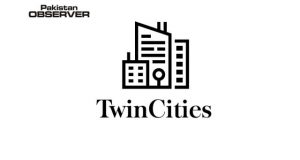Staff Reporter
Journalists from several countries came together in a webinar that discussed lockdown restrictions and the future of journalism in varied countries and conflict zones, including Iraq, Israel and Palestinian territories, Azerbaijan, and Kashmir.
An international nongovernmental organization, YFK-International Kashmir Lobby Group, which works with the United Nations mechanisms and human rights organizations, brought together international journalists to talk about the future of journalism and human rights. YFK is based in Islamabad, Pakistan. The webinar was also a rare occasion to have journalists working in different conflict zones to sit on one table and learn from each other’s perspectives and experiences. Award-winning Iraqi photojournalist Ali Arkady, the whistleblower who uncovered torture cells run by security forces in Iraq, joined Nelofar Abdullah, a journalist who lives and works under the world’s longest lockdown in Indian-occupied Kashmir, and Daniela Donges, who works with journalists and activists as Country Director Israel and Palestinian territories for German Voices for Peace.
Journalist Efsane Elesgerli, a correspondent for the Voice of Karabakh newspaper, described to the participants the circumstances under which journalists and civilians are coping with renewed clashes with Armenia over the Karabakh region, where residents are opposed Armenian presence.
Nelofar Abdullah described incidents where Indian occupation soldiers harassed her at checkpoints during her normal media coverage work. She explained in detail how Kashmiris are coping with the ban on fast-speed internet and are adjusting their lives around 2G speed. Kashmir has around eight million people who have to live with 2G. This has affected I.T. industry, online education, and some medical services.
Daniela Donges, Country Director Israel and Palestinian territories for German Voices for Peace, just completed her two-year stay at the city of Bethlehem, which is part of occupied Palestinian lands in dispute between Israel and the Palestinians.
She described how the health emergency, the lockdowns, and the occupation have combined to create an economic crisis that could explode in the face of both Palestinian and Israeli authorities.







